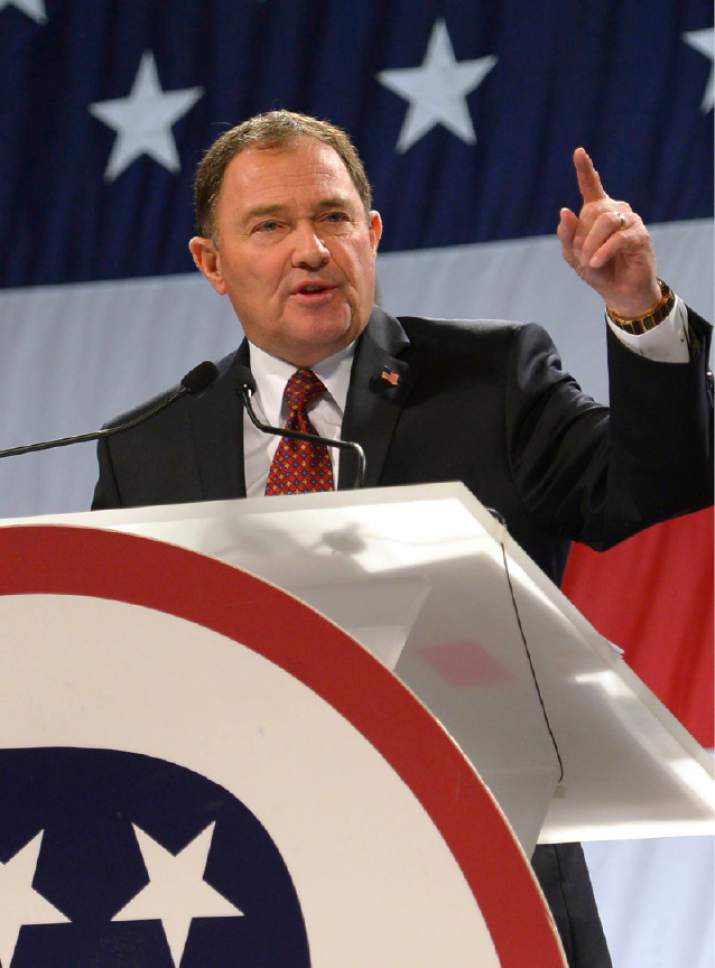This is an archived article that was published on sltrib.com in 2016, and information in the article may be outdated. It is provided only for personal research purposes and may not be reprinted.
There's an element of luck to Gary Herbert's rise to the top in Utah, and it's not just in his predecessor's decision to become the U.S. ambassador to China in 2009, raising Lt. Gov. Herbert to the top job. He also had the advantage of arriving in the Governor's Mansion at the bottom of the recession. There was no place but up for the economy.
But clearly there is more than luck at work here. Herbert didn't just ride the wave back up. He arguably led his state out of the slump better than any leader of the 50 states. Utah's numbers for job creation and overall economic growth top the nation. Herbert constantly crows about the "best for business" lists that score Utah high, and his role in raising those scores has earned him the right to keep crowing as Utah's governor for four more years.
His opponent, Democrat Mike Weinholtz, makes a good point about investing more in education to raise wages, but Weinholtz' downplaying of the fact that Utah's growth is built on low taxes and low wages negates the accomplishment that it is. In the so-called jobless recovery, Utah has done as well as any and better than most at growing jobs, even as we need to do more to grow incomes.
Herbert also gets high marks for working toward a diversified economy. Incentives through the Governor's Office of Economic Development reflect a broad base from technology to manufacturing to service industries. He's given more respect to the tourism industry, including creating a state Office of Outdoor Recreation to add prominence to this growing sector.
That diversity has been an under-realized factor in Utah's ability to handle the downturn in gas, oil and coal. The areas that depend heavily on those industries are feeling pain, to be sure, but the downturn isn't dragging the whole state down as much as it has in less diversified states.
Given the context of large school populations, small taxpayer base and an anti-public school attitude among conservative legislators, the governor has done well to direct most of the taxes from economic growth to education. Still, he misses the chance during these healthy times to invest even more in schools, knowing those dollars will be returned many times over if they lead to more bachelors degrees. On that, Weinholtz is right.
Herbert also can take his Utah cheerleading too far, as when he backs some poor efforts to fight federal control of public lands. The state has always faced challenges with having such a huge federal land presence, but bending toward a longshot lawsuit only sidetracks real negotiations. And despite steady approval ratings, Herbert has had moments of pandering, as he did when he asked the attorney general to investigate whether Utah's version of Common Core represented federal control of schools, or when he went after Planned Parenthood over a red herring of a secret video.
The Gary Herbert who gets our support is the one who tried to find to find a politically palatable way for Utah to accept more than half a billion dollars in Medicaid money annually that it absolutely needs and Utahns have paid for. Healthy Utah couldn't get past Obamacare-hating legislators, but the effort speaks volumes about the practical man who has kept his eyes on the economic prize for Utah.



